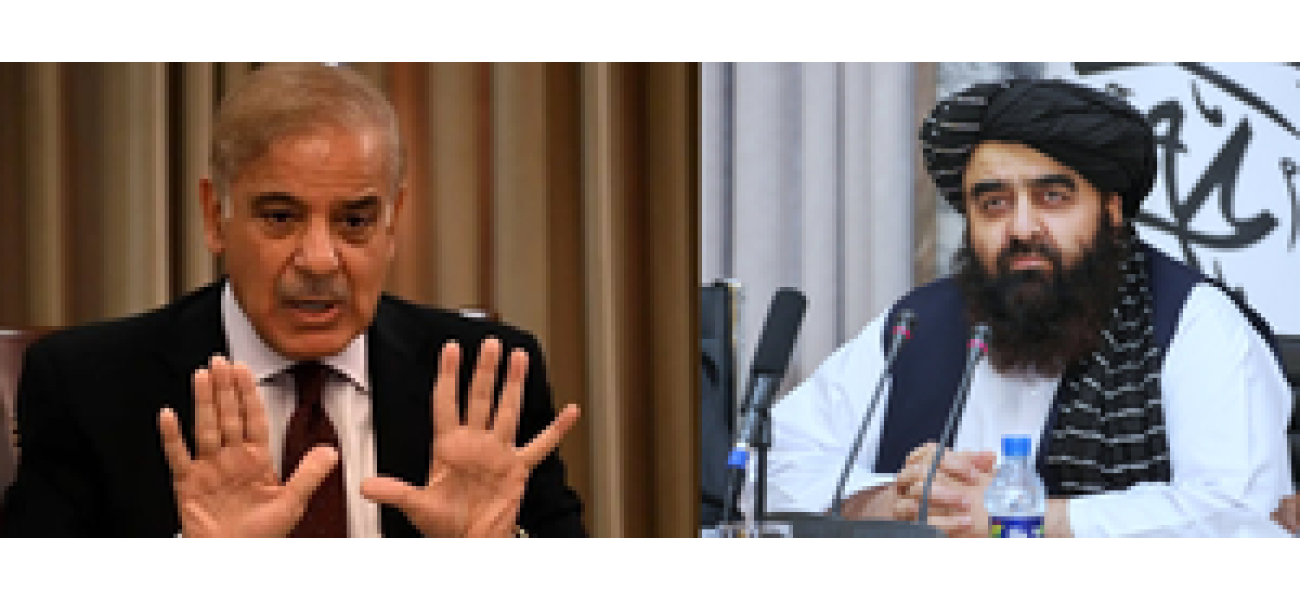Pakistan is worried about India's talks with the Taliban and wants to reevaluate its strategy in Afghanistan.
Indian Foreign Secretary's meeting with Afghanistan's acting Foreign Minister causing concern for Pakistan's leaders who may need to reevaluate their approach towards Kabul.
January 11th 2025.

The recent meeting between the Indian Foreign Secretary and the acting Foreign Minister of Taliban-ruled Afghanistan has caused quite a stir in Pakistan. Many top analysts are now urging the country's political and military leaders to reevaluate their approach towards Kabul, as they fear the consequences of their aggressive actions.
The meeting, which took place in Dubai, covered a range of topics, including bilateral relations and regional developments. This came just two days after India had strongly condemned Pakistan's airstrikes on Afghanistan, which resulted in the deaths of 46 people, including women and children.
The growing calls for a thorough review of Pakistan's Afghan strategy have led to closed-door meetings in Islamabad. Officials are now discussing the country's future approach towards its volatile neighbor, given the deteriorating situation along the border and the strained relations between the two countries. To add to their concerns, the Taliban has been reaching out to other regional states, particularly India, for potential collaborations.
Experts are warning that this should serve as a wake-up call for Pakistan. They point out that India was a major player in Afghanistan before the Taliban takeover, having invested billions of dollars in reconstruction projects. Even the northern alliance, a key group in Afghan politics, has close ties with India. Despite the caution with which India is approaching the Taliban, the fact remains that they are making progress in their engagement with the group, while Pakistan's relations with Afghanistan continue to deteriorate.
Pakistan has long considered the Tehreek-e-Taliban Pakistan (TTP) as a "red line", and has repeatedly urged the Taliban-led Afghan interim government to take decisive action against the group. However, experts suggest that instead of solely communicating with the government in Kabul, Pakistan should also engage with the Taliban leadership in Kandahar, where the real power lies. They point to a fatwa issued by the Taliban in 2023, prohibiting their members from carrying out attacks in Pakistan, as a potential tool to persuade the group to relocate anti-Pakistan elements away from its borders.
It is evident that Pakistan's current strategy towards Afghanistan, which focuses on limited talks and a more aggressive approach, has not yielded any positive results thus far. In the past, Pakistan has expressed concerns over India's influence and presence in Afghanistan, and these concerns could resurface if their current strategy continues.
Experts suggest that Pakistan should not close the door to negotiations, and instead work through regional states to put pressure on the Taliban to take swift action against terrorist groups. They caution that if relations between Afghanistan and Pakistan worsen, it could further destabilize the already volatile security situation and give other countries more room to maneuver.
In conclusion, it is clear that Pakistan needs to reassess its approach towards Afghanistan. The recent developments have highlighted the need for a more nuanced and cooperative approach, rather than the current aggressive stance. As the situation continues to evolve, it is crucial for Pakistan to carefully consider its actions and work towards finding a peaceful solution to the tensions between the two countries.
The meeting, which took place in Dubai, covered a range of topics, including bilateral relations and regional developments. This came just two days after India had strongly condemned Pakistan's airstrikes on Afghanistan, which resulted in the deaths of 46 people, including women and children.
The growing calls for a thorough review of Pakistan's Afghan strategy have led to closed-door meetings in Islamabad. Officials are now discussing the country's future approach towards its volatile neighbor, given the deteriorating situation along the border and the strained relations between the two countries. To add to their concerns, the Taliban has been reaching out to other regional states, particularly India, for potential collaborations.
Experts are warning that this should serve as a wake-up call for Pakistan. They point out that India was a major player in Afghanistan before the Taliban takeover, having invested billions of dollars in reconstruction projects. Even the northern alliance, a key group in Afghan politics, has close ties with India. Despite the caution with which India is approaching the Taliban, the fact remains that they are making progress in their engagement with the group, while Pakistan's relations with Afghanistan continue to deteriorate.
Pakistan has long considered the Tehreek-e-Taliban Pakistan (TTP) as a "red line", and has repeatedly urged the Taliban-led Afghan interim government to take decisive action against the group. However, experts suggest that instead of solely communicating with the government in Kabul, Pakistan should also engage with the Taliban leadership in Kandahar, where the real power lies. They point to a fatwa issued by the Taliban in 2023, prohibiting their members from carrying out attacks in Pakistan, as a potential tool to persuade the group to relocate anti-Pakistan elements away from its borders.
It is evident that Pakistan's current strategy towards Afghanistan, which focuses on limited talks and a more aggressive approach, has not yielded any positive results thus far. In the past, Pakistan has expressed concerns over India's influence and presence in Afghanistan, and these concerns could resurface if their current strategy continues.
Experts suggest that Pakistan should not close the door to negotiations, and instead work through regional states to put pressure on the Taliban to take swift action against terrorist groups. They caution that if relations between Afghanistan and Pakistan worsen, it could further destabilize the already volatile security situation and give other countries more room to maneuver.
In conclusion, it is clear that Pakistan needs to reassess its approach towards Afghanistan. The recent developments have highlighted the need for a more nuanced and cooperative approach, rather than the current aggressive stance. As the situation continues to evolve, it is crucial for Pakistan to carefully consider its actions and work towards finding a peaceful solution to the tensions between the two countries.
[This article has been trending online recently and has been generated with AI. Your feed is customized.]
[Generative AI is experimental.]
0
0
Submit Comment





